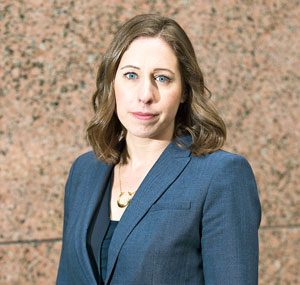Lawyers say that while new changes to the rules around referral fees will likely bring increased transparency and clarity to the referral process, it remains to be seen how the new rules will be enforced.

The Law Society of Upper Canada approved a cap on referral fees at its April meeting that limits the amount lawyers can get for referring cases to $25,000.
The sliding cap will see referral fees be limited to 15 per cent of the first $50,000 charged in legal fees and five per cent of any fees on top of that up to the $25,000 cap.
The cap was one of a number of
recommendations Convocation approved in an attempt to make referral fees more transparent for clients.
The recommendations followed an interim law society report that found clients of some personal injury firms were sometimes unaware that they were being referred to another firm or that a referral fee was paid.
The working group also found that referral fees had been creeping up to sometimes exceed more than 25 per cent.
“The working group recognized that there isn’t a clearly right answer and that reasonable people can have different views as to what the right cap should be and the result was an attempt to not have a cap so harsh as to in effect be a prohibition, and to generally try to achieve a reversal of the increases experienced and to get referral fees back to where they were historically,” says Bencher Malcolm Mercer, who is chairman of the Advertising and Fee Arrangements Issues Working Group.
Kate Mazzucco, a personal injury lawyer and partner with McLeish Orlando LLP, says the changes are consistent with the goals of increased transparency and consistency within the profession, but the law society’s approach to enforcing these rules will be key to how successful they are.
“I think the key will be proper enforcement, which will be something we have to wait and see how the law society does and how things play out, but I think with proper enforcement, we’re going to see increased transparency between the lawyers and the clients regarding referral relationships and fees,” she says.
Claire Wilkinson, president-elect of the Ontario Trial Lawyers Association, says her organization is fully in support of the recommendations, but it will have to wait to weigh in on the cap to see how it plays out in practice.
Wilkinson says there is not agreement among personal injury lawyers at the moment as to what the cap should be and even the 10-per-cent cap the OTLA has been pushing for was a matter of debate at the organization’s board.
Wilkinson says she has heard concerns that if the cap is too low it might encourage lawyers who do not necessarily have the right expertise to take a case on themselves.
“We don’t want people working in areas that go beyond their expertise,” she says.
Convocation opted for a cap rather than an outright ban of referral fees at its February meeting, but the working group has since determined the amount of the cap, in addition to the details of a number of transparency measures.
The transparency measures Convocation approved included a requirement that lawyers fill out a standardized form for referral fees.
The form will have to be signed by the referring lawyer and the lawyer receiving the case, as well as the client.
David Sterns, president of the Ontario Bar Association, says that, while he is supportive of the recommendations, the form is “a bit over the top.”
“The key point is that the client is aware of the fees.
“Adding on a requirement that an agreement be signed by three parties seems to me to be too much paperwork for questionable results,” he says.
“The key is that the client needs to know about the referral fees, but lawyers shouldn’t be put to a requirement to have three-way agreements to establish that.”
Lawyers will also be required to record referral fees in their books going forward and will have to submit information to the law society concerning their referral fee practices in their annual reports.
The law society also banned upfront prohibition fees, meaning lawyers will be unable to go to a number of lawyers to shop around for the largest referral fee before referring the matter.
Mercer says that rather than having an incentive to get the biggest payment upfront, the referrer will ideally look for whoever will get the best return for the client and, therefore, the best return for them.
The prohibition will, therefore, align the interests of the client and the referring lawyer, Mercer says.
“That’s going to ensure that files are being referred not based on who is the highest bidder, so to speak, but that a referral is being made based on competency, which is something we’re required to do as lawyers anyhow,” Mazzucco says.
The working group is still set to tackle advertising issues in the real estate bar, as well as contingency fees.
Mercer says he expects recommendations on those issues could come before Convocation in late spring or early fall.
At its meeting in February, Convocation also approved changes to advertising that would include a requirement that licensees identify whether they are paralegals or lawyers in their advertisements and a ban on lawyers advertising work they have no intention of doing.
Convocation also introduced a ban at that meeting on second opinion advertising, which encourages clients who have already retained lawyers to switch to the advertiser.

 The Law Society of Upper Canada approved a cap on referral fees at its April meeting that limits the amount lawyers can get for referring cases to $25,000.
The Law Society of Upper Canada approved a cap on referral fees at its April meeting that limits the amount lawyers can get for referring cases to $25,000.